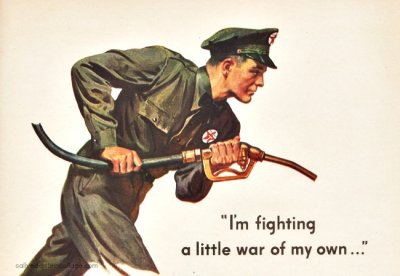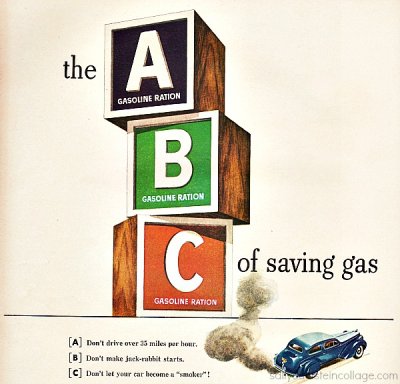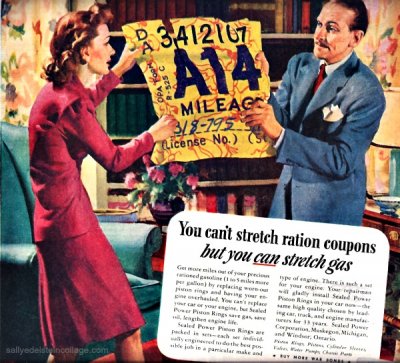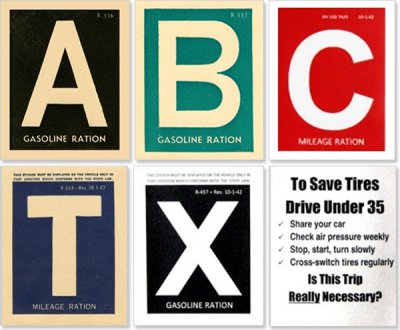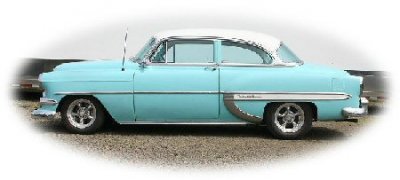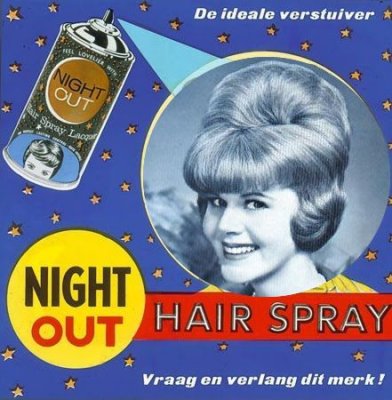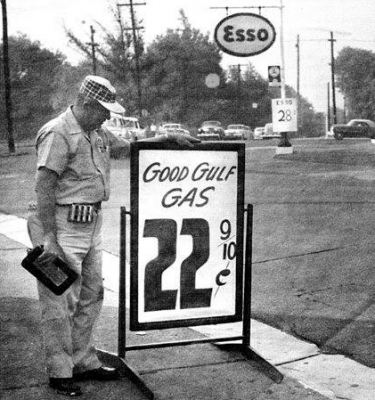2jakes
I'll Lock Up
- Messages
- 9,680
- Location
- Alamo Heights ☀️ Texas
Wooden bumpers (WW2)

Station-wagon (woodie) metal bumper was replaced with wood.
The metal would be sent to places like Pennsylvania, where recycled
metal was used for building ships and other items.
The front-passenger window depicts a gas-ration sticker.
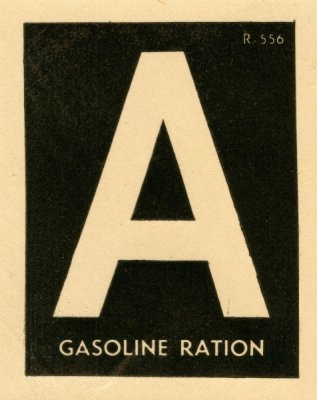
“A” ration letter allowed people to buy four gallons of gasoline a
week during WW2.
Station-wagon (woodie) metal bumper was replaced with wood.
The metal would be sent to places like Pennsylvania, where recycled
metal was used for building ships and other items.
The front-passenger window depicts a gas-ration sticker.

“A” ration letter allowed people to buy four gallons of gasoline a
week during WW2.
Last edited:
